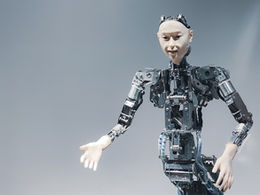
Can Meta's new free AI model take ChatGPT's crown? Answered.
In the field of AI, it's very possible for one model to surpass another in terms of performance, given sufficient advances in technology, methodology, or data.
However, it's important to remember that "taking the crown" isn't simply a matter of performance on benchmark tests. A number of factors can be taken into consideration:
Effectiveness: This is typically measured through benchmark tests which assess the model's performance on a variety of tasks. These can include language translation, question-answering, and other text-based tasks for language models like ChatGPT.
Accessibility and Usability: How easy is it for developers and users to access and use the model? A model that performs slightly worse but is much easier to use might be considered superior by many people.
Ethics and Safety: AI models can unintentionally generate biased or harmful content, or be used in ways that are harmful. Models that are better at preventing these issues might be preferred, even if they aren't quite as effective in other ways.
Community Support: AI models are often used and developed in open-source communities. A model with strong community support can benefit from a wealth of external contributions, which can lead to rapid improvements and innovative applications.
Can Meta's new free AI model take ChatGPT's crown?
OpenAI's GPT-3 (the predecessor of ChatGPT) was widely regarded as one of the most advanced language models available.
If Meta's new free AI model is to take ChatGPT's crown, it would have to surpass it in these and potentially other areas. Given the rapid pace of AI development, this is certainly a possibility, but it would require further information to say for certain.
Here are 10 facts about Artificial Intelligence (AI):
Definition of AI: AI is a branch of computer science that aims to create systems capable of performing tasks that usually require human intelligence. These tasks can include speech recognition, decision-making, visual perception, and language translation.
Types of AI: AI can be broadly classified into two types: Narrow AI, which is designed to perform a specific task such as voice recognition, and General AI, which can theoretically perform any intellectual task that a human being can.
Machine Learning: Machine learning is a subset of AI where the machine is given the ability to learn from data without being explicitly programmed. It uses algorithms to parse data, learn from it, and then make predictions or decisions.
Deep Learning: Deep learning is a subset of machine learning inspired by the structure of the human brain, and it uses artificial neural networks. These networks have multiple layers (hence 'deep') that allow for complex, non-linear relationships between inputs and outputs.
AI in Daily Life: AI is present in many aspects of our daily lives. Examples include virtual assistants like Siri or Alexa, recommendation systems on platforms like Netflix or Amazon, and even spam filters in our email systems.
AI in Healthcare: AI is being extensively used in the field of healthcare for tasks such as disease detection, drug discovery, personalized medicine, and patient care. For example, AI algorithms can analyze medical images to detect diseases like cancer at early stages.
Autonomous Vehicles: AI is a key technology in the development of self-driving or autonomous vehicles. It enables the vehicle to perceive its environment, make decisions, and navigate without human intervention.
AI Ethics and Bias: AI systems can unintentionally perpetuate and amplify societal biases because they learn from data that has been generated by humans. Issues like fairness, accountability, and transparency in AI are significant areas of study.
AI Job Market: According to a report by the World Economic Forum, by 2025, the job roles in AI will continue to rise. They estimate that machines and AI will create 12 million more jobs than it will displace.
Future of AI: The future of AI holds immense possibilities with continued advancements in technology. However, there are also concerns about its potential impact on society and the economy, including issues of privacy, job displacement, and even existential risks. As such, responsible AI development and use is a crucial topic of discussion among researchers, policymakers, and the public.


























